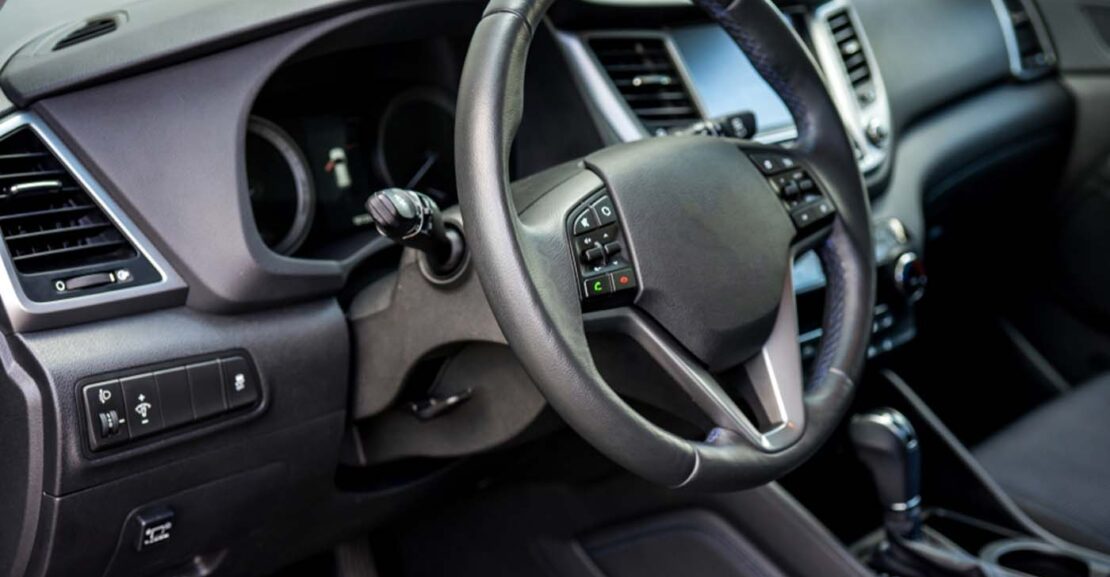Based on the most recent data available, it was reported that in 2019, over 150,000 lives were tragically lost due to road accidents in India. These alarming statistics call for immediate action to enhance road safety.
As we find ourselves well into the year 2023, the Indian automobile industry has introduced a series of comprehensive safety regulations for cars, revolutionizing the way we approach driving.
These new safety norms hold the promise of significantly reducing the number of accidents in the years to come.
This blog talks about the new car rules and various automotive safety standards that are mandated by the government.
2023 Safety Norms For Cars:
The safety norms in India have undergone significant updates, introducing essential safety features to protect both passengers and pedestrians. Here are some of the mandatory safety features that all cars are now required to have:
- Airbags
As part of the new regulations, all cars are mandated to be equipped with driver-side airbags as a minimum requirement. Furthermore, front passenger airbags, side airbags, and curtain airbags are also compulsory to ensure the safety of all passengers on board.
- Seat Belt Reminder
To enhance safety, the new norms mandate seat belt reminders for both the driver and front passenger seats. These reminders alert occupants if their seat belts are not fastened. Additionally, seat belt reminders for rear seats are now also required.
- Anti-lock Braking System (ABS) And Electronic Stability Control (ESC)
Since 2018, ABS has been made mandatory for all cars in India. ABS prevents wheel lock-up during braking, enhancing vehicle control. The new car rules additionally require Electronic Stability Control (ESC) in all cars, which detects and reduces skidding or loss of control during cornering.
- Reverse Parking Sensors And Camera
To prevent accidents while parking, all cars must now be equipped with reverse parking sensors. Moreover, the new regulations stipulate the inclusion of a reverse camera for improved visibility and safety during parking maneuvers.
- Child Safety And Speed Warning System
Addressing child safety concerns, all cars must feature a child lock system and provision for ISOFIX (International Standards Organisation FIX) child seat anchorage. Additionally, a speed warning system is mandatory, alerting the driver if the car exceeds a speed limit of 80 km/hr.
These mandatory automotive safety standards signify a significant step towards ensuring the safety of road users in India and reducing the number of accidents.
Evolving Safety Standards: A Look at Past And Present Safety Norms
When contrasting the new automotive safety standards with the old ones, it becomes evident that the previous regulations in India lacked the rigor to enforce advanced safety features in cars. The introduction of the new safety norms marks a significant leap forward, enhancing the safety standards of Indian vehicles.
Here are key distinctions between the old and new car rules:
- Advanced Safety Features: The new safety norms mandate the inclusion of advanced safety technologies, such as Electronic Stability Control (ESC) and Anti-lock Braking System (ABS), which were not obligatory under the previous norms.
- Enhanced Airbag Requirements: Unlike the old norms that only necessitated a driver-side airbag, the new safety norms demand airbags for both the driver and front passenger, providing greater protection to occupants.
- Stricter Implementation Deadlines: The new safety norms impose tighter timelines for compliance, compelling car manufacturers to adhere to the updated regulations sooner.
By bridging the gaps in safety standards, the new safety norms demonstrate a genuine commitment to improving road safety in India, ensuring that vehicles are equipped with the latest safety technologies for the welfare of all road users.
Safety Regulations For Electric Vehicles In India:
Electric vehicles (EVs) are gaining popularity in India, and the government has introduced specific safety regulations for them. These regulations are in addition to the new safety norms for conventional cars. Key regulations for EVs include:
- Mandatory Crash Test: All EVs must undergo a rigorous crash test before sale to ensure they meet safety standards.
- Compliance With Safety Standards: They must meet the same safety standards as conventional cars, including those introduced in 2021.
- High-Voltage Cut-Off System: EVs must have a high-voltage cut-off system to prevent electrocution in accidents, safeguarding passengers and first responders.
- Visual And Audible Warning: They also need to be equipped with a warning system to alert pedestrians of their presence, reducing accidents involving pedestrians and EVs.
These regulations promote the growth of electric mobility while prioritizing safety on Indian roads.
Effective Methods To Achieve Compliance With The New Car Rules:
- Regular Inspections: Conducting routine inspections by the government will help ensure that manufacturers are meeting the requirements of the new safety norms. These inspections can identify any deviations and encourage timely corrections.
- Imposing Penalties For Non-Compliance: To enforce compliance, manufacturers failing to meet the new safety norms should face penalties. By holding them accountable, the industry will be motivated to align with the regulations promptly.
- Consumer Education: Educating consumers about the importance of new safety norms and their associated features will create a demand for vehicles that meet the updated standards. This increased demand for safer vehicles will naturally encourage manufacturers to comply with the new norms.
By employing these measures, we can make significant progress in promoting road safety and creating a culture of compliance with the new safety regulations.
Wrapping Up
In conclusion, the year 2023 has ushered in a new era of road safety in India, with the implementation of mandatory automotive safety standards. These regulations represent a significant stride towards minimizing road accidents and protecting the lives of both passengers and pedestrians.
As we drive forward into the future, it is reassuring to know that all cars must now be equipped with essential safety elements, such as airbags, ABS, ESC, seat belt reminders, reverse parking sensors, and child safety provisions.
By adhering to these stringent automotive safety standards, the Indian automobile industry is reinforcing its commitment to creating safer roads and a more secure driving experience for everyone. As responsible drivers and informed consumers, let us embrace and prioritize these mandatory safety features, collectively working towards a brighter and safer future on India’s roads.
At India Car Bazaar, we provide the best second-hand cars in compliance with new car rules you can check out our website to know more.






